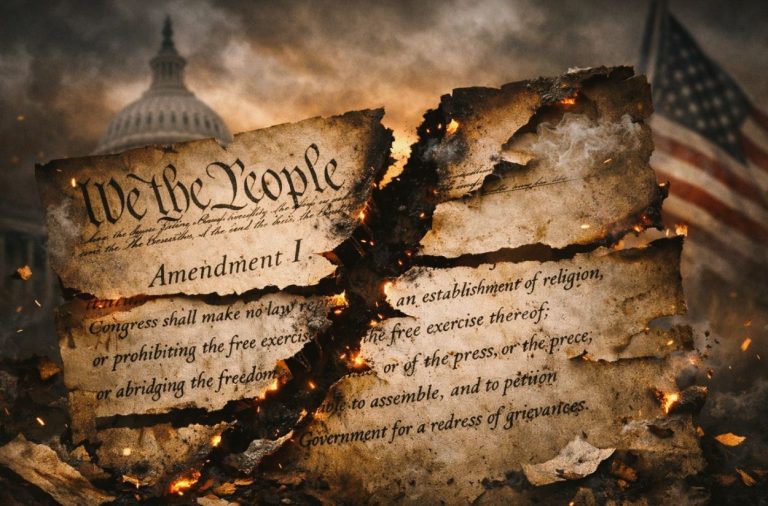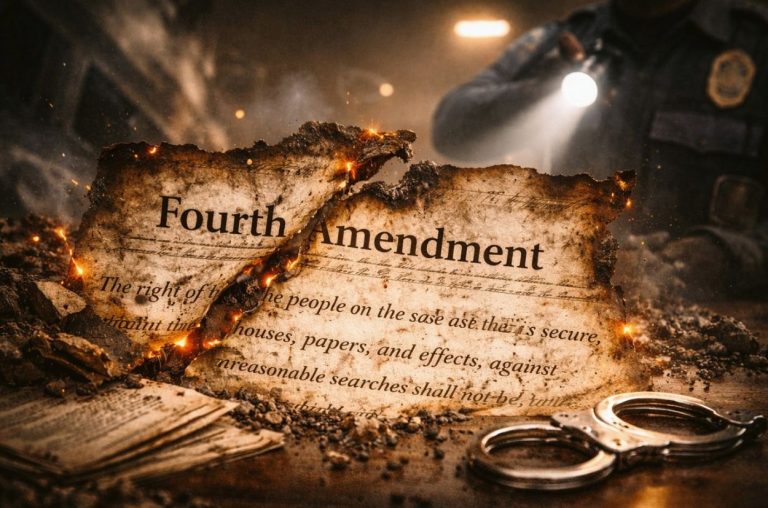

Maxwell’s move to a minimum-security camp is not merely about comfort. It is about what justice means when applied to the powerful.

By Matthew A. McIntosh
Public Historian
Brewminate
Introduction: A Quiet Transfer with Loud Questions
The Bureau of Prisons has a rulebook, and on its face, Ghislaine Maxwell does not seem like someone who fits within its more lenient categories. Yet the convicted accomplice of Jeffrey Epstein, found guilty of conspiring to traffic minors, was quietly moved to a federal prison camp in Bryan, Texas. Officially, the transfer was procedural. Unofficially, it looks like a scandal waiting to unravel.
For many, the move calls into question whether the rules governing federal incarceration were bent for political reasons. It comes as Maxwell’s statements to the Department of Justice have drawn scrutiny for casting Donald Trump in a favorable light. The convergence of these threads makes her case not just a question of prison placement but of political manipulation.
The Official Story of Maxwell’s Transfer
Maxwell was sentenced to 20 years in prison in 2022, serving initially in a higher-security facility in Florida. Then, without public explanation, she was reassigned to a minimum-security camp designed for nonviolent offenders. The Federal Prison Camp Bryan in Texas is often described as “a college campus without the ivy,” a far cry from the typical confinement faced by sex offenders.
Policy requires that such transfers be evaluated based on security risk, nature of crimes, and disciplinary record. As critics have pointed out, child trafficking convictions normally preclude assignment to a prison camp. The decision raised alarms immediately, with lawmakers demanding to know whether Bureau of Prisons rules were quietly set aside in this case.
Political Echoes and DOJ Involvement
The controversy deepened when reporting revealed that Maxwell had met with senior officials at the Department of Justice before the transfer. Within days of her interviews, her security level was reevaluated, paving the way for the move. House Judiciary Democrats released a statement demanding answers, calling the sudden shift “a blatant violation of public trust.”
The timing suggests a disturbing possibility: that Maxwell’s cooperation with DOJ officials included not just testimony, but favorable spin.
Maxwell’s Statements on Trump and Epstein
Earlier this month, PBS published excerpts from DOJ interview transcripts in which Maxwell insisted she never saw Trump act “inappropriately” around women or girls. This testimony stands in stark contrast to her role in enabling Epstein’s abuse, and to Trump’s long-documented social ties with Epstein.
At the same time, newly uncovered emails reported by Forbes showed Epstein explicitly instructing Maxwell to remove Trump from lists of associates. On one hand, this suggests Trump wanted distance from Epstein once public scrutiny increased. On the other, it raises the question of why Maxwell’s testimony so carefully exonerated him. Was she rewarded for protecting his reputation?
The Senate and House Pushback
Lawmakers are not letting the transfer slide. Senator Sheldon Whitehouse has demanded full documentation of Maxwell’s transfer, citing concerns about policy violations and political interference.
Members of the House Judiciary Committee, too, are pressing the DOJ and Bureau of Prisons for clarity. Their concern is not only about Maxwell but about precedent: if a high-profile sex trafficker can be rewarded with minimal confinement, what does that say about equal justice under the law?
Prison Policy, Precedent, and Possible Violations
The Bureau of Prisons uses a security classification system that weighs the seriousness of an inmate’s crimes, history of violence, escape risk, and more. Sexual offenses involving minors are explicitly considered high-risk. A move to minimum security, in that light, is not simply unusual; it looks like a violation.
Consider the many offenders serving long sentences for lesser crimes in harsher conditions. Maxwell’s transfer undermines the public’s faith that federal policy is applied consistently. If exceptions were made for her, it reinforces the sense that wealth, power, and political connections buy a different brand of justice.
The Trump–Epstein–Maxwell Triangle
Donald Trump’s relationship with Jeffrey Epstein has long been controversial, from the infamous Mar-a-Lago parties to their social presence in New York’s elite circles. The release of Maxwell’s DOJ testimony, paired with Epstein’s request to strike Trump from his records, suggests a coordinated effort to manage the optics of that relationship.
Maxwell, uniquely positioned as both accomplice and witness, had leverage. By offering statements favorable to Trump, she may have secured for herself a lighter prison experience. This triangle – Trump’s need for reputational protection, Epstein’s awareness of his vulnerability, and Maxwell’s bargaining position – forms the core suspicion surrounding her transfer.
Historical Parallels: Deals, Prisons, and Political Favoritism
American history is not short on examples of politically connected figures receiving unusual leniency. From the Iran–Contra prosecutions to Mafia cooperators who traded testimony for reduced sentences, prison time has often been negotiated currency. The Maxwell case fits within this tradition, but it also strikes a nerve because of the crimes involved.
Child trafficking is a crime widely seen as beyond the pale. To see its most notorious female perpetrator living in relative comfort forces a grim reckoning: in the United States, not all crimes are punished equally, and not all prisoners are treated alike.
What Comes Next
Investigations are ongoing. Both Congress and watchdog groups are pursuing answers, and the Bureau of Prisons will face growing pressure to justify the transfer. Freedom of Information Act requests may reveal more of the paper trail.
For now, the unanswered question looms: was Ghislaine Maxwell moved because she was cooperative or because she was politically useful?
Conclusion: Power, Punishment, and Public Trust
Maxwell’s move to a minimum-security camp is not merely about comfort. It is about what justice means when applied to the powerful. If her testimony was part of an unspoken bargain to cast Trump in a more favorable light, then her prison transfer represents something far darker than a bureaucratic oversight. The case suggests that power can warp even the institutions designed to restrain it. And that, perhaps, is the greatest scandal of all.
Originally published by Brewminate, 09.16.2025, under the terms of a Creative Commons Attribution-NonCommercial-NoDerivatives 4.0 International license.


